Short-selling is one of the hottest investing-related topics of all time and a popular trading strategy. Investors usually invest in stocks they expect to get more valuable over time. On the other hand, short-sellers follow a different approach. They bet against stocks they believe to be overpriced.
Often, short-sellers use this strategy to target companies with challenging outlooks. Short-sellers also use the tactic to bet against stocks that they believe are overheated and overvalued. Thus, rising short interest in a stock could be a red flag for general investors. On the other hand, growing short interest could hint at an upcoming short squeeze. Let’s take a look at the top most-shorted stocks globally.
These Are The Top Most-Shorted Stocks Globally
Carvana
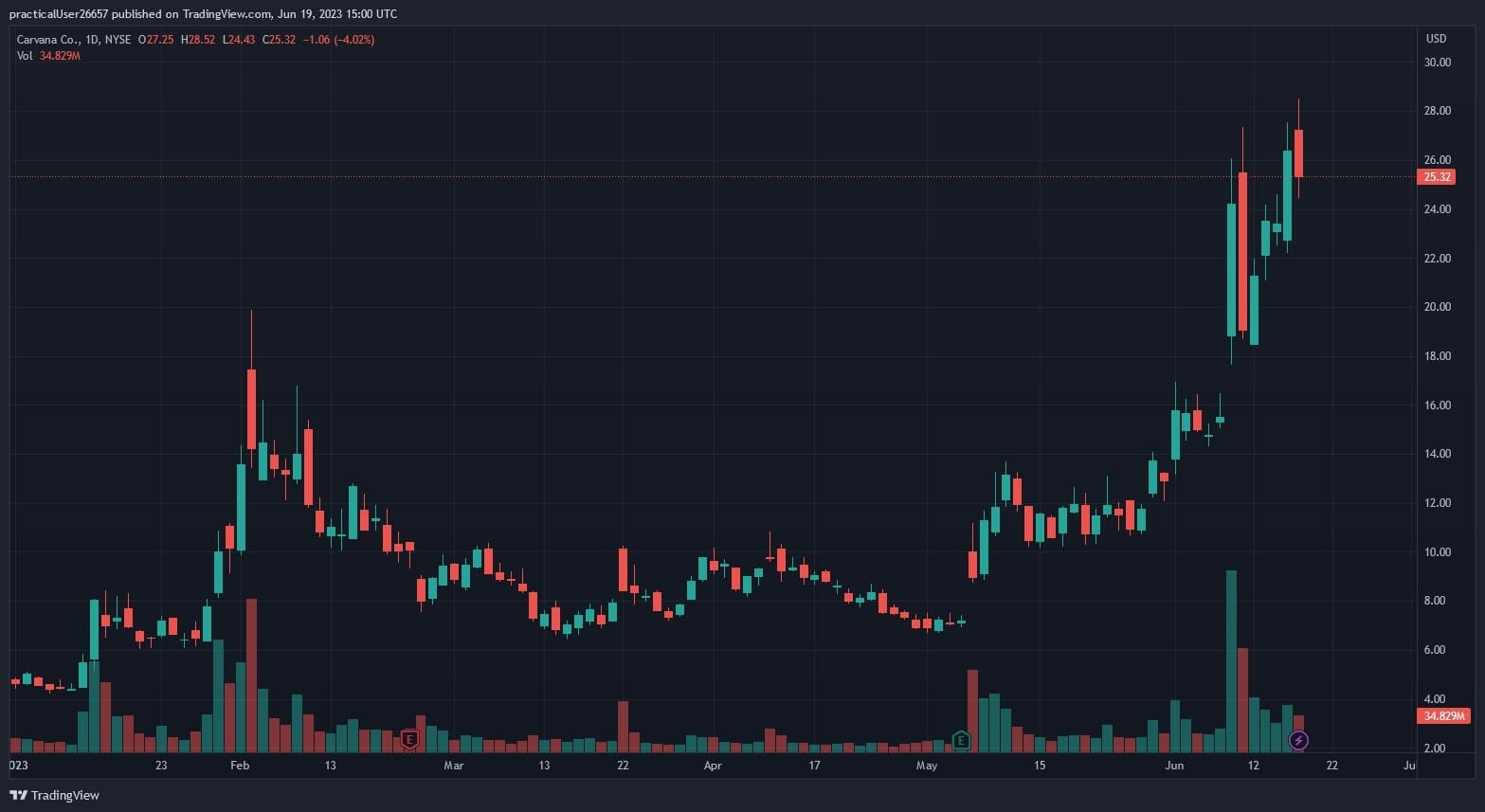
Founded in 2012 and headquartered in Tempe, Arizona, Carvana operates an e-commerce platform for buying and selling used cars. The company’s shares are up by over 434% year to date, bringing their one-year gain to more than 4%. As of this writing, Carvana Co (NYSE:CVNA) shares are trading at around $25.30 with a 52-week range of $3.55 to $58.05, giving the company a market capitalization of more than $4.7 billion.
Beyond Meat
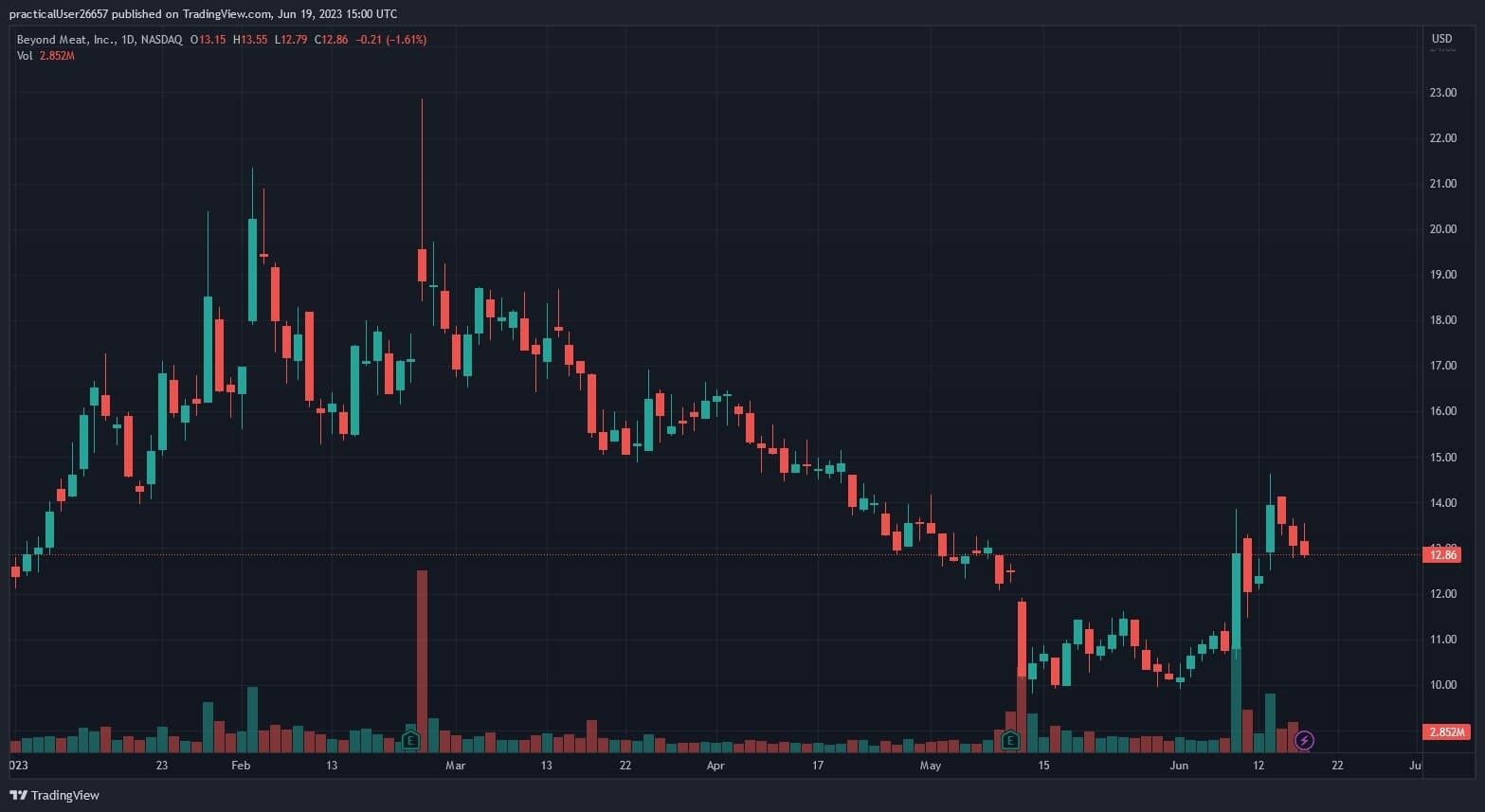
Founded in 2009 and headquartered in El Segundo, California, this company deals in plant-based meats. The company’s shares are up by over 4% year to date but are down almost 46% over the last year. As of this writing, Beyond Meat (NASDAQ:BYND) shares are trading at around $12.80 with a 52-week range of $9.82 to $44.59, giving the company a market capitalization of more than $825 million.
Big Lots
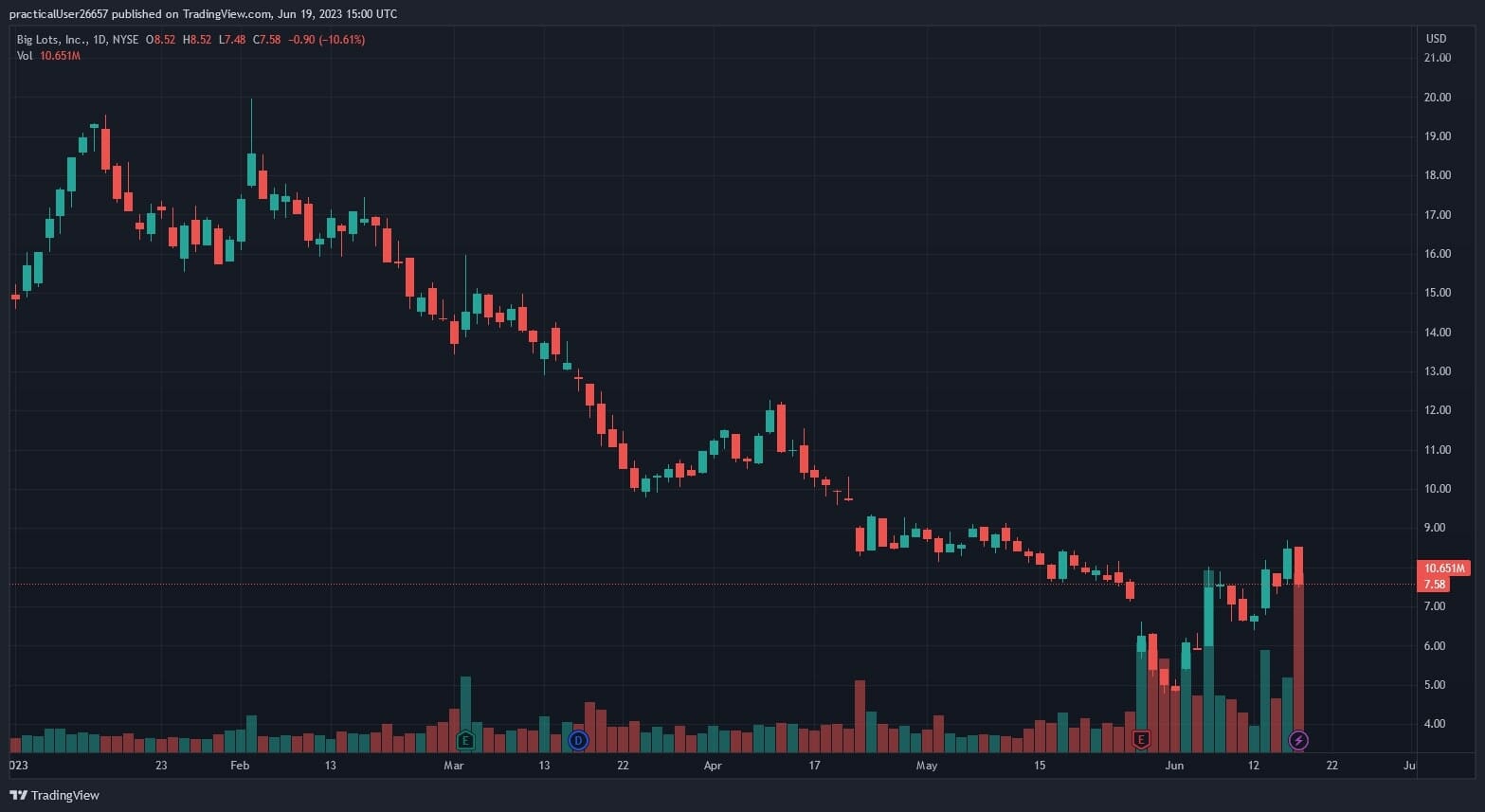
Founded in 1967 and headquartered in Columbus, Ohio, this company operates retail stores. Its shares are down by over 48% year to date, bringing their one-year decline to almost 65%. As of this writing, Big Lots Inc (NYSE:BIG) shares are trading at around $7.50 with a 52-week range of $4.78 to $29.25, giving the company a market capitalization of more than $221 million.
Novavax
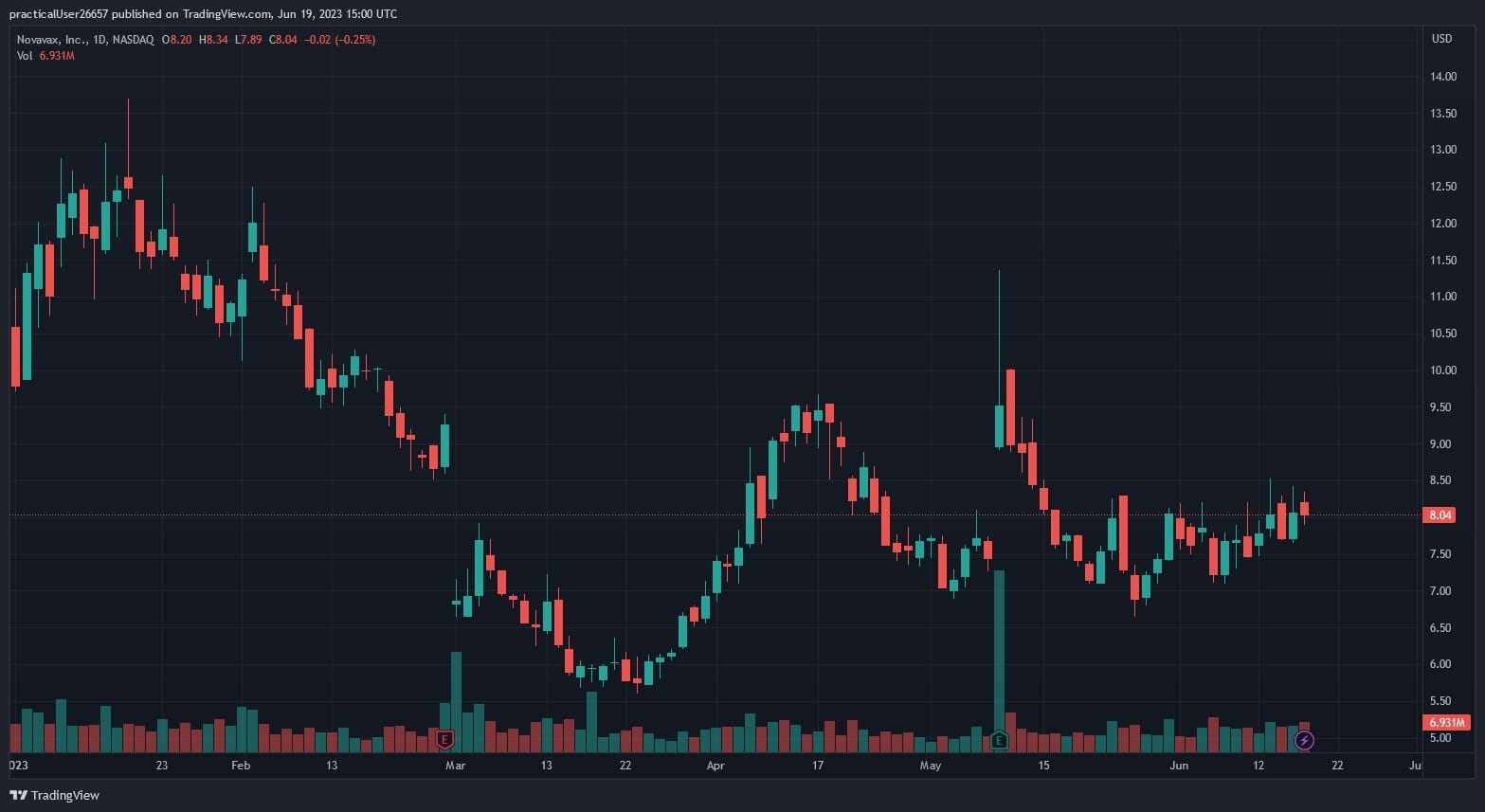
Founded in 1987 and headquartered in Gaithersburg, Maryland, Novavax is a biotechnology company that develops recombinant vaccines. The company’s shares are down almost 28% year to date, bringing their one-year decline to more than 80%. As of this writing, Novavax Inc (NASDAQ:NVAX) shares are trading at around $8.04 with a 52-week range of $5.61 to $76.77, giving the company a market capitalization of more than $693 million.
Lovesac
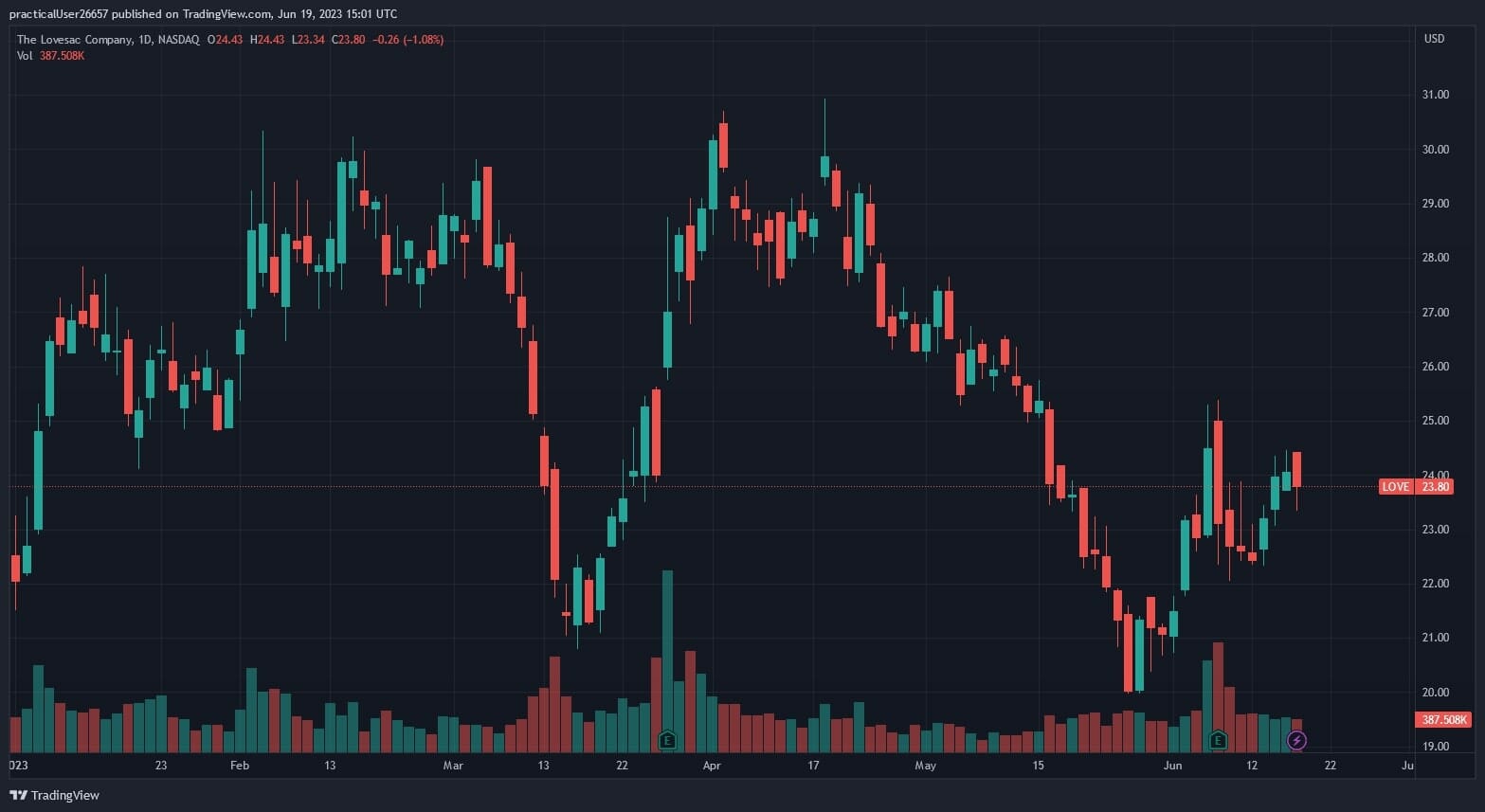
Founded in 1995 and headquartered in Stamford, Connecticut, Lovesac is a patented modular furniture retailer. The company’s shares are up by over 7% year to date, but they’re still down almost 20% over the last year. As of this writing, Lovesac Co (NASDAQ:LOVE) shares are trading at around $24.40 with a 52-week range of $17.60 to $39.81, giving the company a market capitalization of more than $362 million.
Trupanion
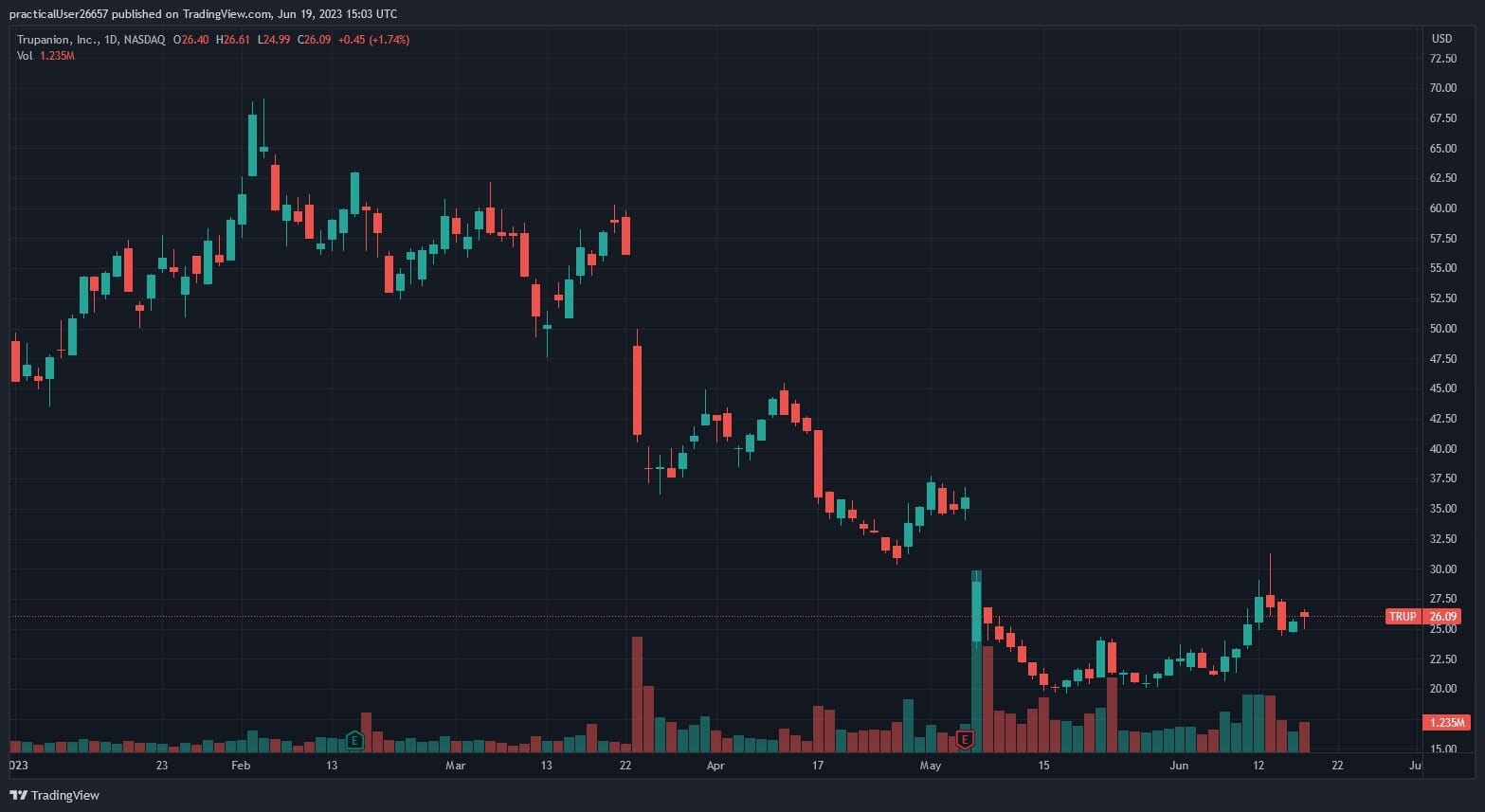
Founded in 2000 and is headquartered in Seattle, Washington, this company offers medical insurance for cats and dogs. The company’s shares are down by over 45% year to date, bringing their one-year decline to almost 50%. As of this writing, Trupanion Inc (NASDAQ:TRUP) shares are trading at around $25.50 with a 52-week range of $19.64 to $82.49, giving the company a market capitalization of more than $1 billion.
Editas Medicine
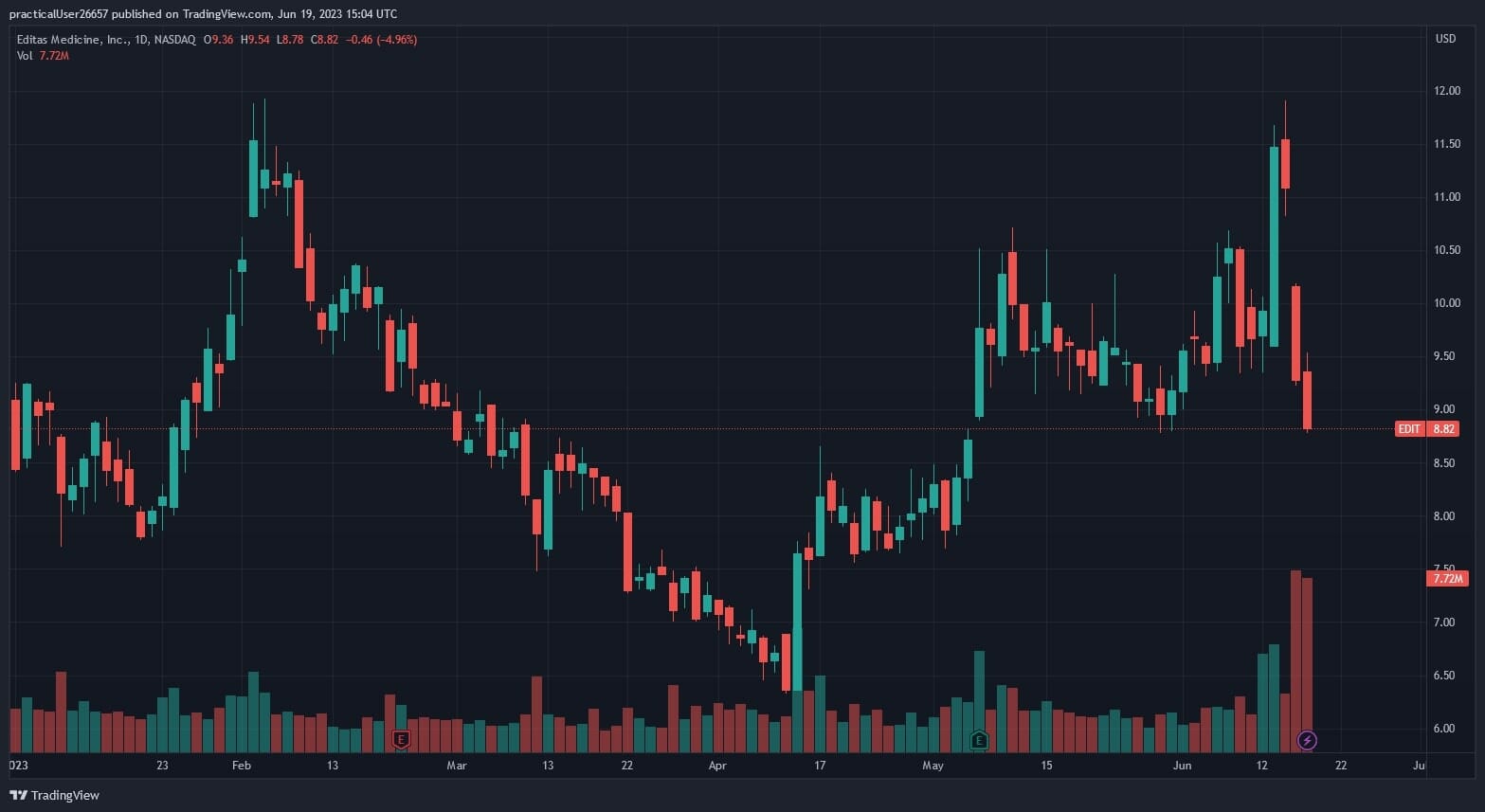
Founded in 2013 and headquartered in Cambridge, Massachusetts, this company develops genome editing technology. The shares are down by almost 1% year to date, bringing their one-year decline to almost 22%. As of this writing, Editas Medicine Inc (NASDAQ:EDIT) shares are trading at around $8.85 with a 52-week range of $6.33 to $19.97, giving the company a market capitalization of more than $719 million.
Upstart Holdings
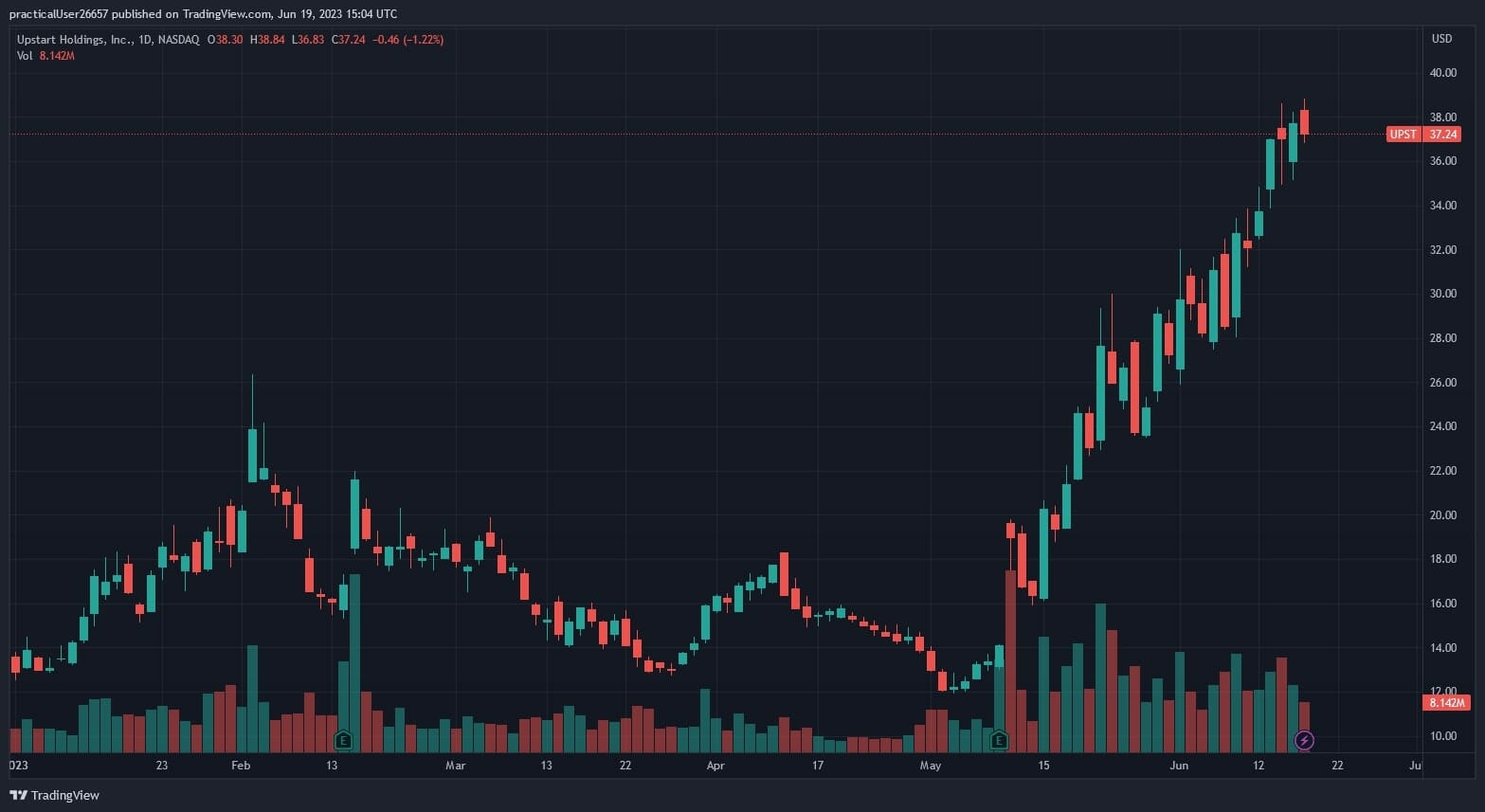
Founded in 2013 and headquartered in San Mateo, California, this company operates a cloud-based artificial intelligence lending platform. Its shares are up almost 182% year to date, bringing their one-year gain to almost 6%. As of this writing, Upstart Holdings Inc (NASDAQ:UPST) shares are trading at around $37.10 with a 52-week range of $11.93 to $41.30, giving the company a market capitalization of more than $3 billion.
Fate Therapeutics
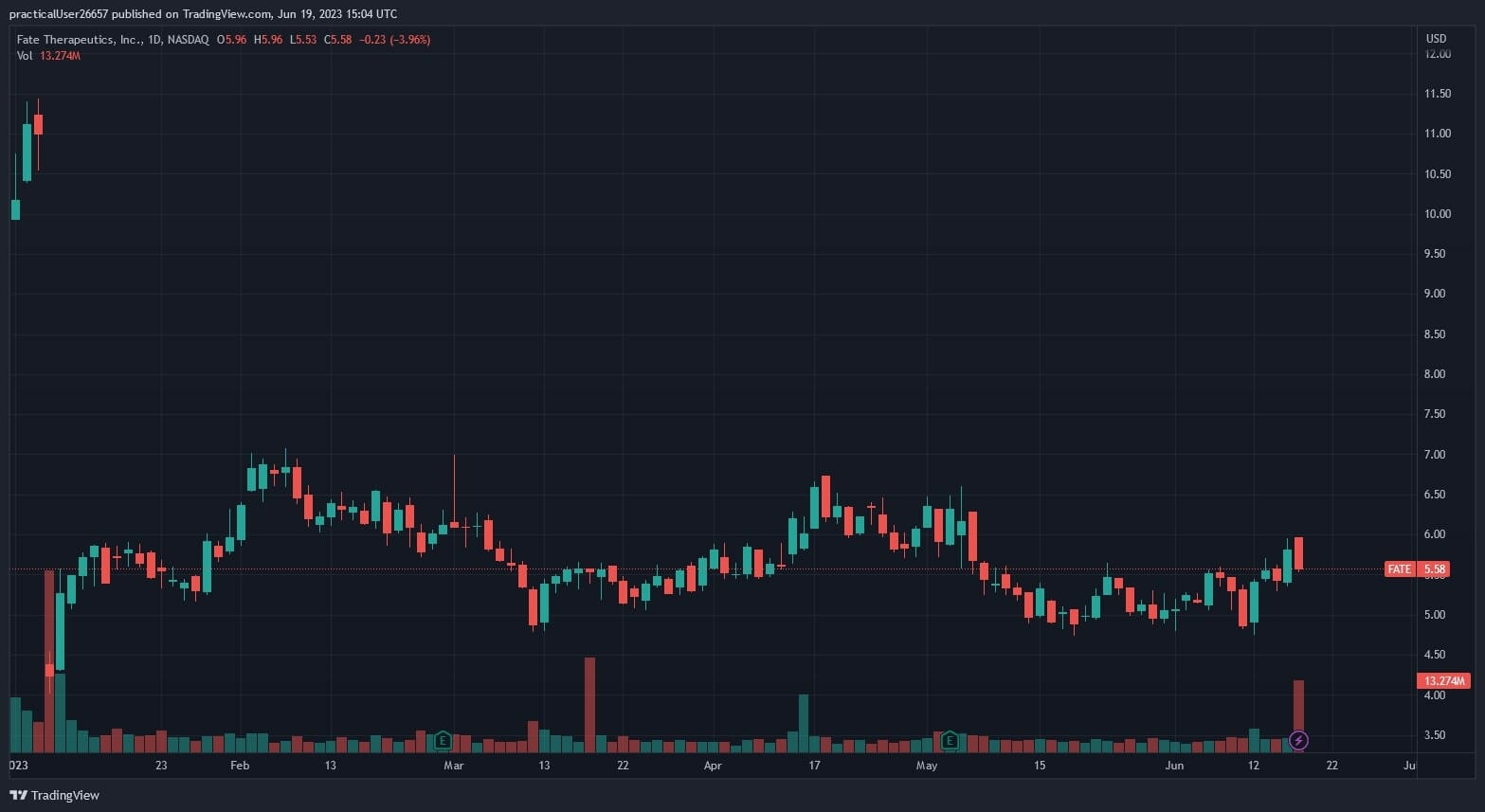
Founded in 2007 and headquartered in San Diego, California, this company develops programmed cellular immunotherapies. Its shares are down almost 45% year to date, bringing their one-year decline to more than 73%. As of this writing, Fate Therapeutics Inc (NASDAQ:FATE) shares are trading at around $5.50 with a 52-week range of $4.02 to $37.13, giving the company a market capitalization of more than $548 million.
Children’s Place
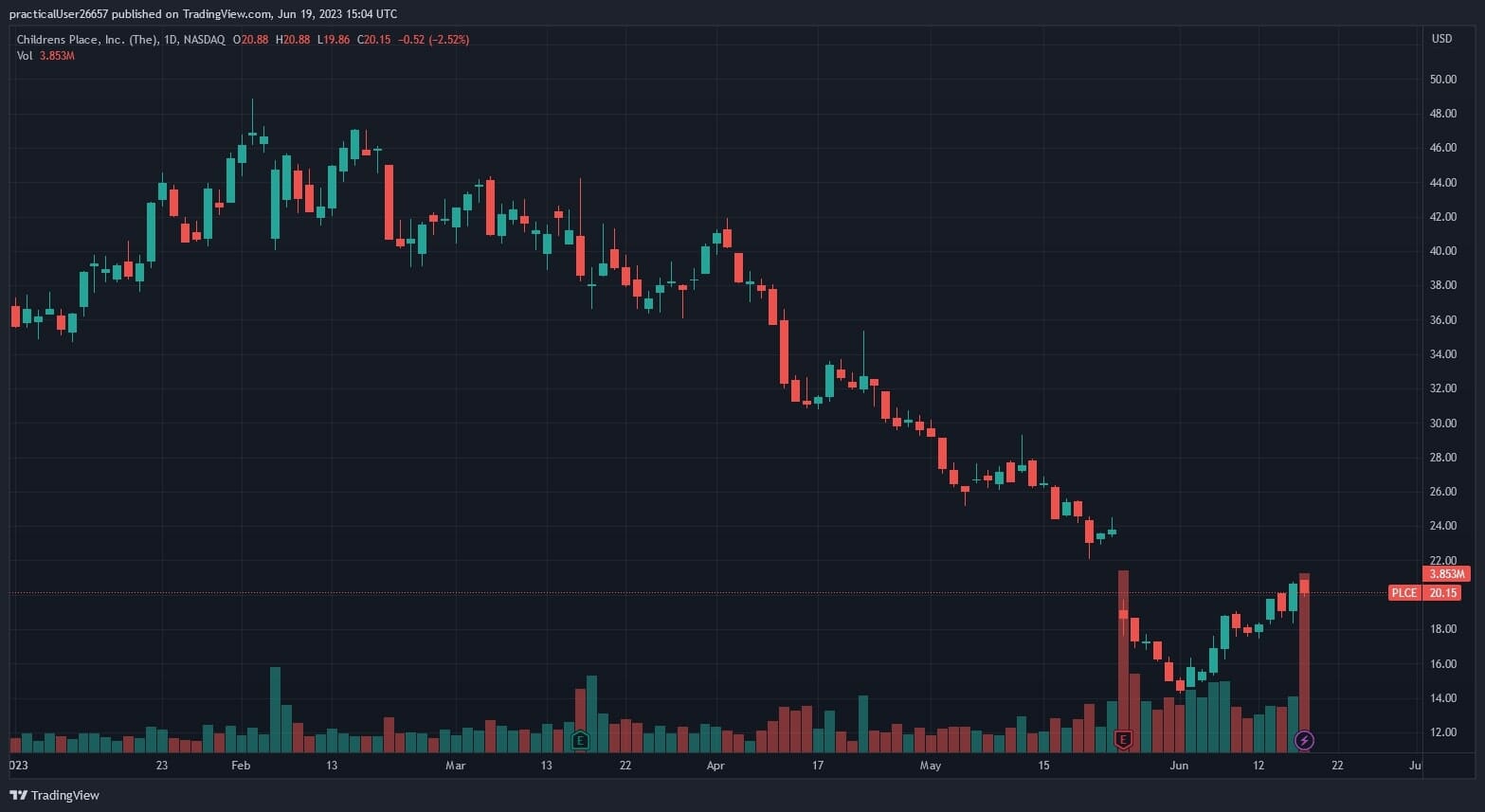
Founded in 1969 and headquartered in Secaucus, New Jersey, this company offers footwear, accessories, apparel and other items for children. The shares are down almost 45% year to date, bringing their one-year decline to more than 54%. As of this writing, Children’s Place Inc (NASDAQ:PLCE) shares are trading at around $19.80 with a 52-week range of $14.27 to $57, giving the company a market capitalization of more than $251 million.
C3.ai
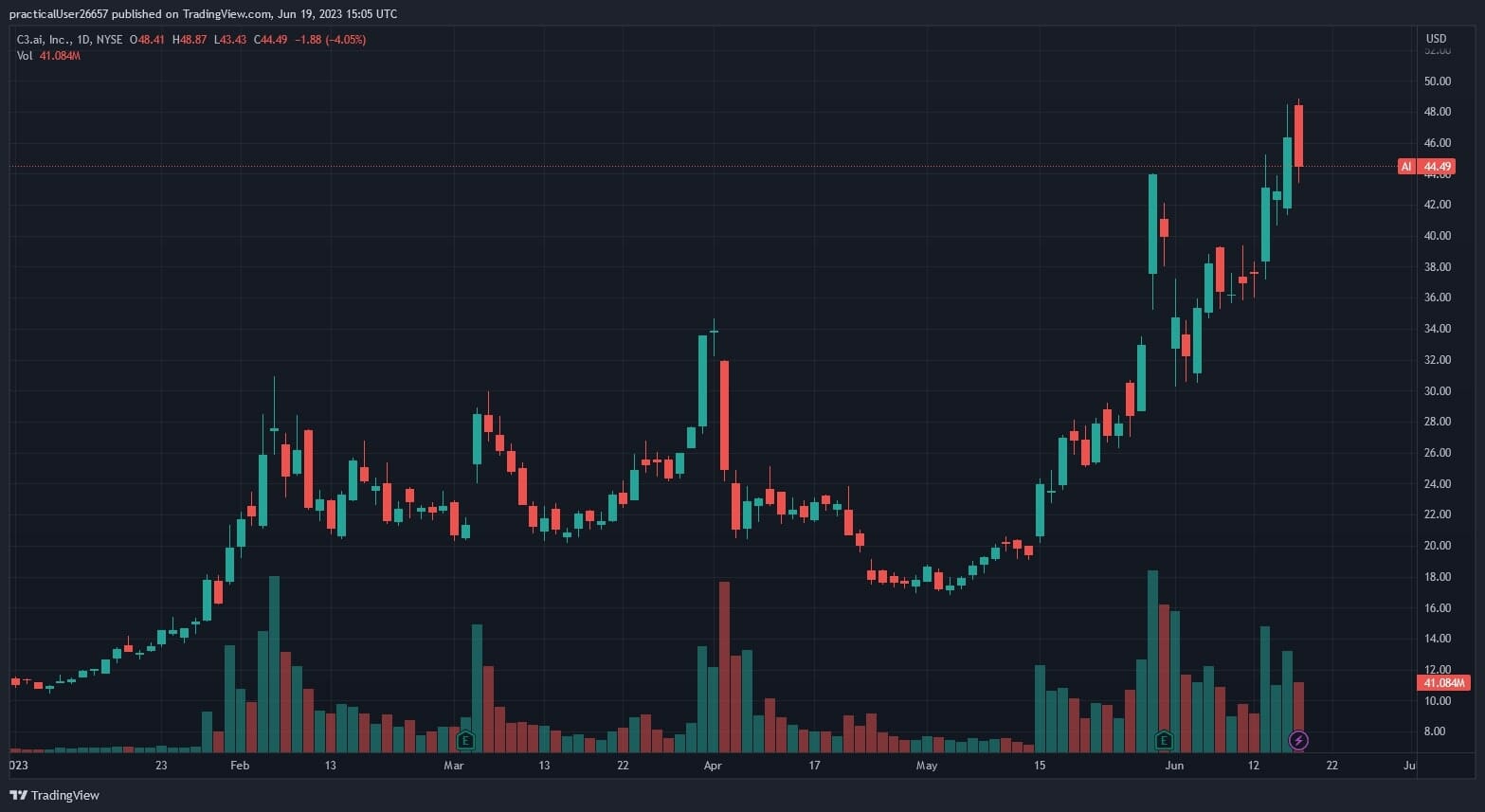
Founded in 2009 and headquartered in Redwood City, California, this company offers enterprise artificial intelligence (AI) software. Its shares are up almost 298% year to date, bringing their one-year gain to almost 164%. As of this writing, C3.ai Inc (NYSE:AI) shares are trading at around $44.30 with a 52-week range of $10.16 to $48.87, giving the company a market capitalization of more than $4.98 billion.
Allogene Therapeutics
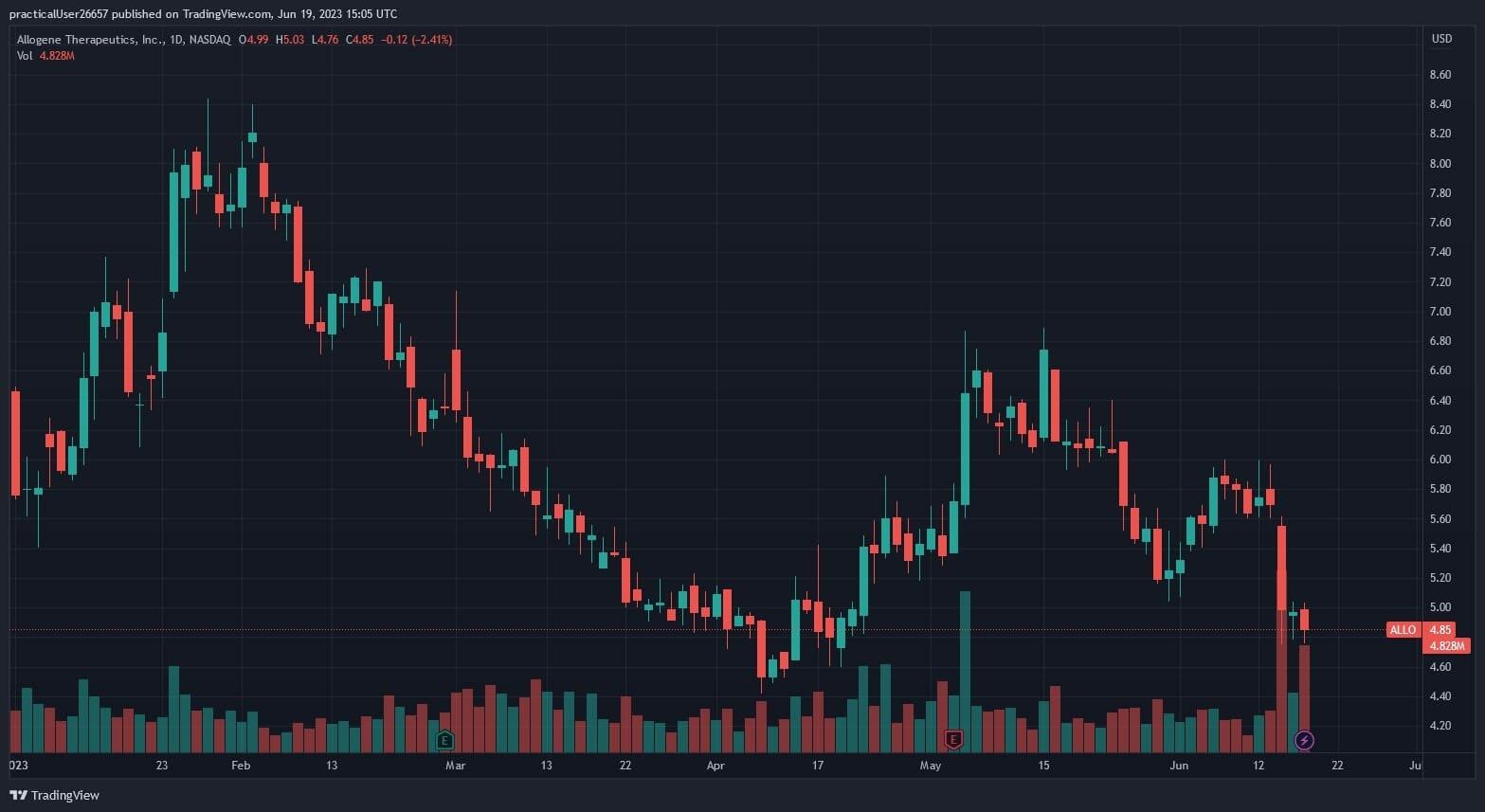
Founded in 2017 and headquartered in South San Francisco, California, Allogene is a clinical-stage immuno-oncology company. The company’s shares are down almost 23% year to date, bringing their one-year decline to almost 56%. As of this writing, Allogene Therapeutics Inc (NASDAQ:ALLO) shares are trading at around $4.80 with a 52-week range of $4.42 to $17.49, giving the company a market capitalization of more than $707 million.
SL Green Realty
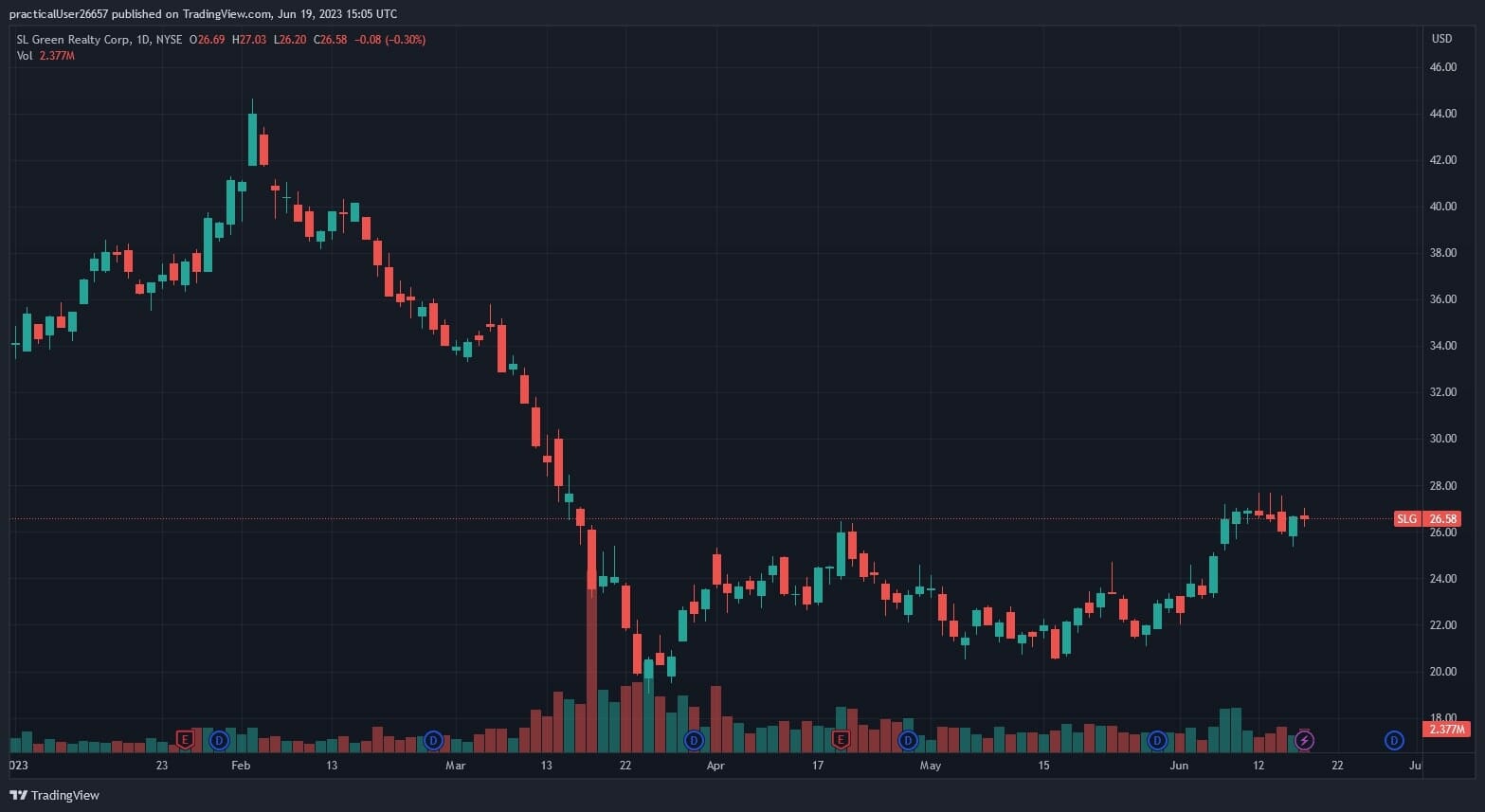
Founded in 1997 and headquartered in New York City, SL Green Realty is a real estate investment trust (REIT). Its shares are down more than 21% year to date, bringing their one-year decline to almost 46%. As of this writing, SL Green Realty Corp (NYSE:SLG) shares are trading at around $26.80 with a 52-week range of $19.06 to $51.69, giving the company a market capitalization of more than $1.7 billion.
MicroVision
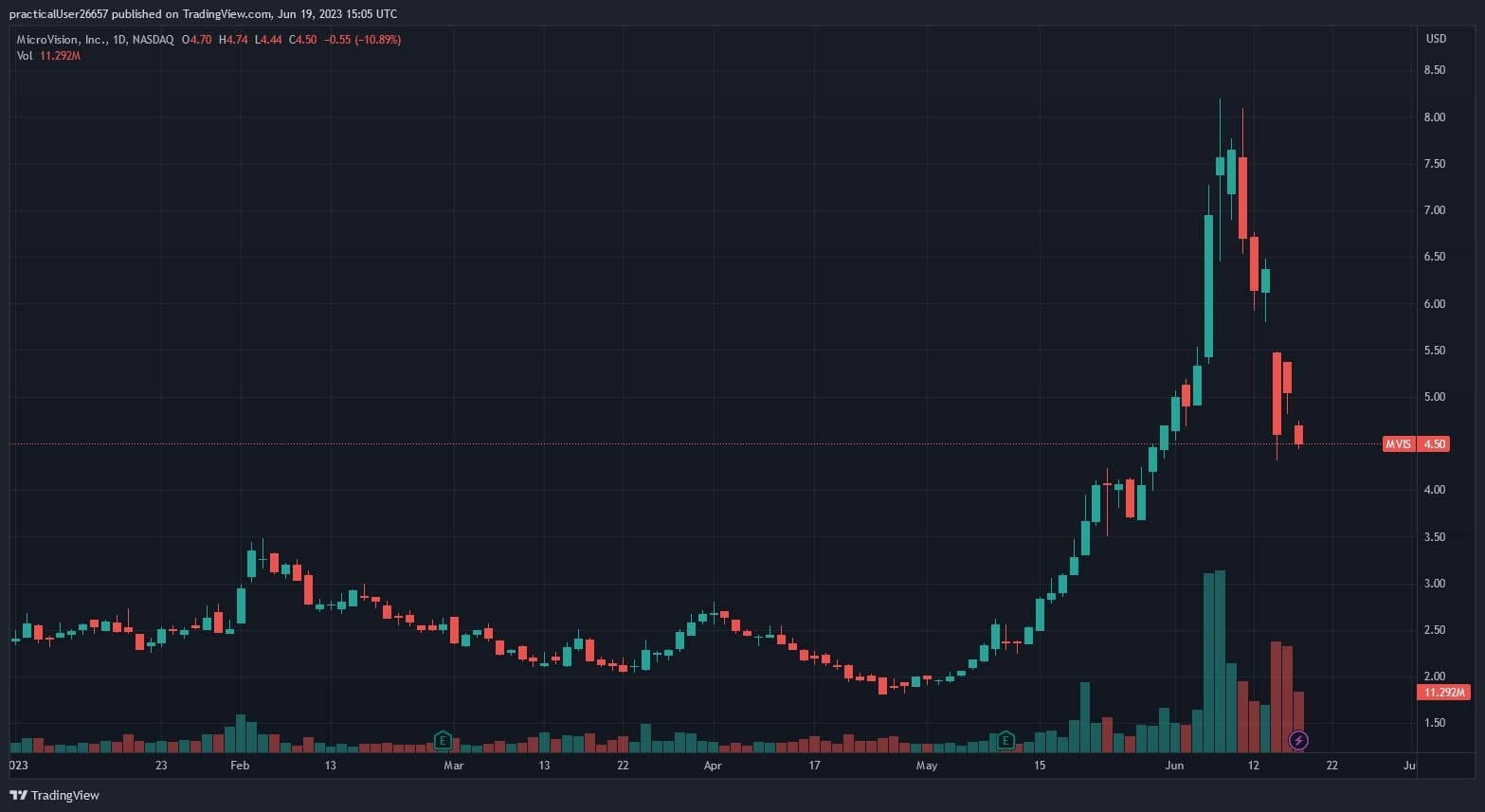
Founded in 1993 and headquartered in Redmond, Washington, this company develops laser beam scanning technology. Its shares are up more than 91% year to date, bringing their one-year gain to more than 20%. As of this writing, Microvision Inc (NASDAQ:MVIS) shares are trading at around $4.50 with a 52-week range of $1.82 to $8.20, giving the company a market capitalization of more than $794 million.
FAQs
What Is Short-Selling In Stocks?
It is an act of selling a stock without actually owning it. The short-seller makes a promise to deliver the stock to the buyer at a future date.
What happens in a short sale is that a broker lends some shares from their own inventory to the seller, who then sells those to a buyer. Later, the seller covers or squares off the position by buying the same number of shares and returning them to the broker.
What Is A Short Squeeze?
A short squeeze is said to occur when there’s a significant amount of short-selling in a stock. In other words, many investors are betting on the price dropping. However, instead of dropping, the stock price jumps unexpectedly as short-sellers decide to cut their losses and exit their positions. Thus, many savvy investors work to anticipate stocks that could see a short squeeze.
Can You Short OTC Stocks?
Yes, short-selling an over-the-counter stock is allowed, although it’s not recommended. This is because OTC stocks generally trade in low volumes, making them illiquid. Thus, a short-seller could be left with some shares when they try to cover an unprofitable short position.
Has The U.S. Ever Banned Short-Selling?
The U.S. banned short-selling due to the country’s unstable market and extreme speculations around the War of 1812. The ban remained in place until the 1850s, when it was revoked.
Short-selling was also restricted during the Great Depression.
Several countries, including the U.S., also implemented temporary short-selling bans around the time of the 2008 financial crisis.












